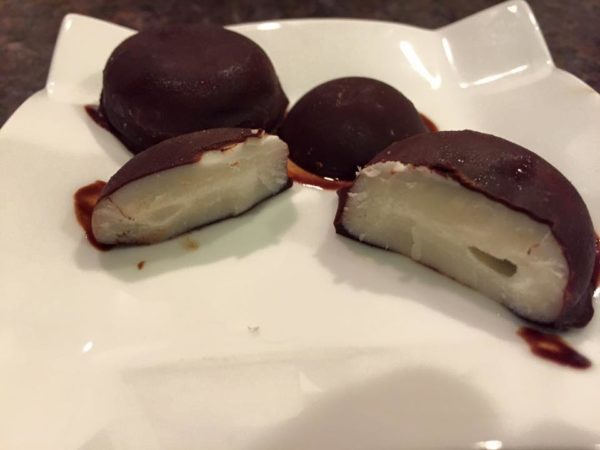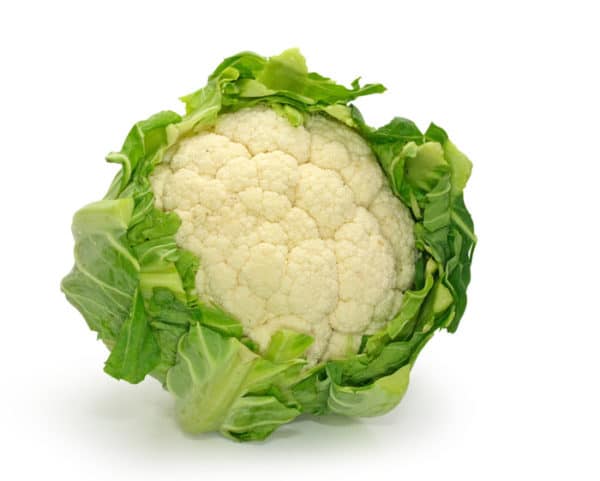

In today’s blog on low stomach acid, you will once again find that asking the right questions can get you to the root of your client’s true problems.
This is the final part of my series, “When Eating More Greens is Not a Good Idea”. Again, the five examples I am discussing with you where greens may cause worsening symptoms in your client are rare…but it is still good to be aware of them– as well as to be able to recognize them– in case you come across these situations when working with your clients.
Stomach acid is something that affects a lot of people, but there is a lot of confusion over it.
Stomach acid, or HCl (Hydrochloric acid), has an important function. HCl helps people fully digest their food, especially proteins. It also helps the body extract and absorb the nutrients from the food and supplements they put in their body. You need a very acidic stomach – a pH level of 2 is optimal – to adequately digest and absorb nutrients from your food. The production of low stomach acid is called hypochlorhydria. People with a history of H. pylori are are more likely to have hypochlorhydria.
A client with low stomach acid may have issues eating raw greens, as well as other foods.
When someone starts eating and chewing, their saliva signals to the stomach to produce acid in order to adequately digest their meal.
Interestingly, low stomach acid is more common than excess stomach acid! Yes, you always hear people say they have an acid problem, and so they reach for the acid reducing and heartburn medication. But taking those will only make their symptoms worse!
I usually don’t see excess stomach acid except in younger people, as well as in people who are really chronically stressed.
So if your client is having signs of burning, acid reflux, or is showing signs of mineral deficiencies, a key question to ask is how they feel after eating.
Excess stomach acid – Clients who report to you that they feel really hungry about an hour or two after eating (with or without heartburn) are likely suffering from excess stomach acid.
Low stomach acid – Clients saying they feel a sense of fullness (with or without heartburn) during or after a small meal are likely suffering from low stomach acid. This is because the food hasn’t digested and is just sitting there (and they will see more undigested food in their stools, as well). I often find that people who think they need to eat more protein have low stomach acid. Older people tend to have less acid as well, because they’ve had damage over the years to the cells on their stomach lining.
How can you confirm that your client is experiencing low stomach acid?
Along with taking a thorough history of symptoms, to confirm whether your client is having an issue with low stomach acid, you can have them do something called the HCl challenge. They are instructed to take one HCl tablet during a meal that contains at least 20 grams of protein. Do not take on an empty stomach or after meals, and do not open capsules and take as a powder. If they feel burning, they have adequate HCl, and shouldn’t take any more of the tablets. If there is NO reaction, they have low HCl, so can take a higher dose at their next protein meal. Once they feel warmth or burning, they need to stop. Do not do this test without first consulting a qualified medical professional familiar with your personal health history if you have or have had stomach related health conditions such as GERD, ulcers, or gastritis. Taking HCl, even if you need it, can aggravate these conditions and result in increased pain and burning.
There is also a liquid mineral test that you can do to test for how well the stomach is absorbing. The absorption of minerals primarily takes place within the small intestines. As food matter passes through the intestines, minerals transfer into the blood stream through the walls of the intestines by way of the villi. This can only happen if the minerals are in an ionic form. Although stomach acid helps ionize the minerals in foods, a mineral supplement should contain already naturally ionized minerals to be fully absorbed.
How can you help a client with low stomach acid?
To help a client that you suspect has low stomach acid, there are a number of things you can try:
- Avoid further damage! Alcohol, environmental toxins, too much salt, and hydrogenated fats…all of these damage the parietal cells and result in low stomach acid. So have your client improve their diet!
- Have them de-stress! I know it sounds simple, but eating more calmly and taking one’s time with a meal can really aid with the digestion process.
- Add healthy things to the diet such as Omega-3 fats. Hemp seeds and chia seeds are my favorites).
- Add digestive enzymes and high zinc foods (or even consider zinc supplementation for a while): Zinc is very important for the creation of digestive enzymes and the hydrochloric acid the body needs for good digestion and nutrient absorption. Because your client’s stomach is going to have trouble absorbing zinc from foods (if they are low in stomach acid), you might need to use a supplement for a time until things get more balanced. I like to use ionized liquid for a few months, and then have them do the zinc taste test to determine if they are normal again. Once normal, just have them do more high zinc foods such as chia seeds, cashews, pumpkin seeds, leafy greens, and sea vegetables.
- Try using bitters before a meal: Bitter foods, chewed many times prior to a meal, will help stimulate the production of stomach acid. You can use something like dandelion or arugula, and have them literally chew for 10-15 minutes before each meal. This will also cause the liver to release more bile. You can also purchase digestive bitters in tincture form.
- Try Apple Cider Vinegar: It has a very low pH, and 1 tablespoon can be taken before meals.
- Take HCl supplements: I actually don’t advise this unless you are careful and really monitor your client. Too much acid can cause damage to the stomach lining, including an ulcer. And it should only be taken when eating protein as well.
I hope you found this series helpful!
In my Nutritional Endocrinology Practitioner Training (NEPT), I offer over 200 hours of training and mentorship that can impact your client’s ability to heal. Learn more about the NEPT training and other practitioner-focused resources, programs, and tools by applying at http://www.NEPTApply.com!
I’d love to know YOUR experiences with stomach acid issues. What have you found to be the most effective way to increase your client’s HCl? Let me know in the comments below.
Share this:

Are you feeling stuck?
Do you feel as if something is missing from your practice that's keeping you from delivering breakthrough outcomes for your clients?.
Recent Posts
Our Programs
Nutritional Endocrinology Practitioner Training (NEPT)
The Mastery and Certification tier is our flagship program and provides everything you need to feel confident as a practitioner who knows how to get results that lead to healthy and happy clients.
Functional Assessment Mastery
Explore the relationships between the most important hormones and their relationship with nutrition.
Functional Nutrition Mastery
Learn how to support your clients to eat and supplement in a way that reduces and eliminates chronic symptoms.
Medical Disclaimer: The information on this website is not intended to replace a one-on-one relationship with a qualified health care professional and is not intended as medical advice. It is intended as a sharing of knowledge and information from the research and experience of Dr. Ritamarie Loscalzo, drritamarie.com, and the experts who have contributed. We encourage you to make your own health care decisions based upon your research and in partnership with a qualified health care professional.
Disclosure: Sometimes (but not always), when I share resources in my programs, newsletter, and on my website, I'm using an affiliate link, which means I do make money if you buy. My credibility is extremely important to me; therefore, I only endorse the products, services, and people I believe in. DrRitamarie.com is independently owned and the opinions expressed here are my own.
Click here to see our Privacy Policy.












[…] out my blog on low stomach acid for other […]